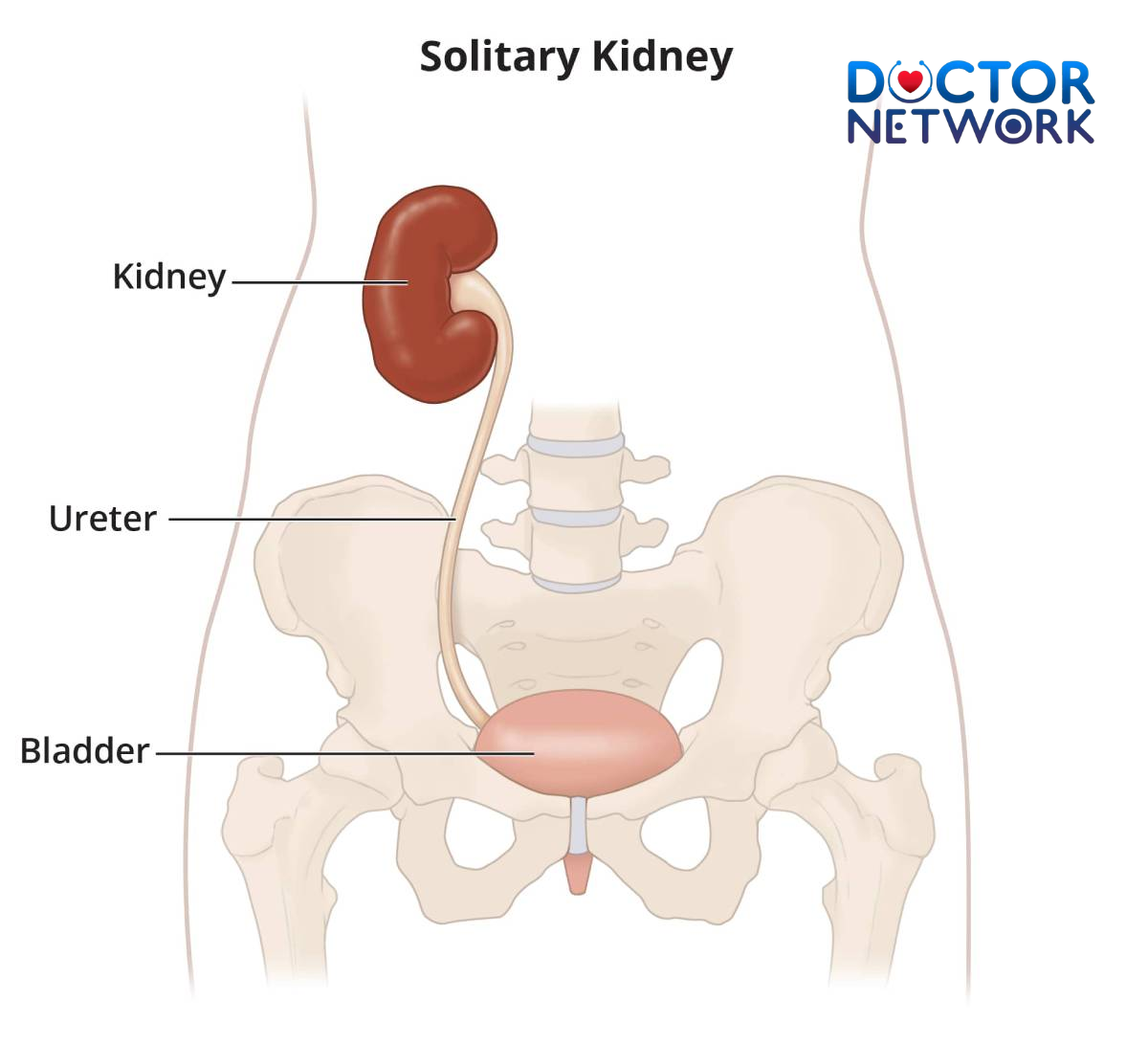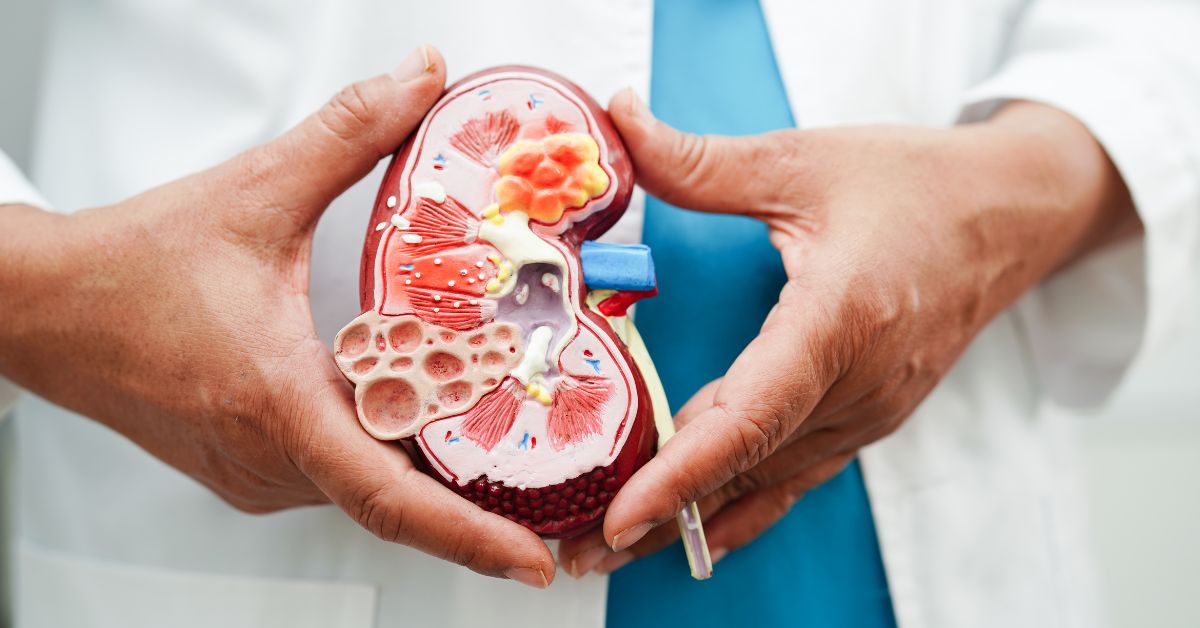The concern for signs of weak kidneys in women is significant in medical discussions. Studies have indicated that diseases affecting women often have a lesser severity and a lower impact range compared to men. However, if kidney weakness in women is not properly and timely controlled, it could lead to dangerous complications.
Symptoms of Kidney Failure in Women
Kidney failure, also known as renal insufficiency, is a condition where the kidneys are no longer able to filter and eliminate waste from the blood effectively. In women, signs and symptoms of kidney failure can manifest in various forms and often develop gradually, making it difficult to identify them. Here are some common symptoms women should be aware of:
- Persistent fatigue and lack of energy as a sign of weak kidneys in women: Due to the kidneys’ inability to efficiently remove waste from the blood, the body may feel tired and weak without an apparent cause.
- Swelling, especially in the ankles, legs, and hands as a sign of weak kidneys in women: This condition is caused by the accumulation of fluid due to an imbalance of sodium and water in the body.
- Shortness of breath as a sign of weak kidneys in women: Fluid buildup in the lungs can cause breathing difficulties, especially during physical activity or while lying down.
- Changes in urine output as a sign of weak kidneys in women: Weak kidneys can lead to changes in urine volume, including urinating more frequently at night or less than usual.
- Foamy or bloody urine as a sign of weak kidneys in women: This indicates the leakage of protein or blood into the urine, a sign of kidney damage.
- Loss of appetite and unexplained weight loss as a sign of weak kidneys in women: Accumulation of waste in the blood can lead to nausea and loss of appetite, resulting in weight loss.
- High blood pressure as a sign of weak kidneys in women: Kidneys play a crucial role in regulating blood pressure; kidney failure can lead to high blood pressure.

Kidney weakness significantly impacts women’s health, particularly concerning reproductive health and pregnancy
Itchy and dry skin as a sign of weak kidneys in women: Waste buildup in the blood can cause itching and make the skin dry and rough. These symptoms can significantly affect the daily quality of life for women, reducing their ability to participate in daily activities, negatively impacting their mental health and work capacity. If left untreated, this condition can progress to end-stage kidney failure, threatening life.
Causes of Kidney Failure in Women
Kidney failure can arise from various causes affecting both men and women. However, certain risk factors and common causes may particularly impact women, leading to reduced kidney function. Understanding these causes can aid in early detection and effective prevention measures.
Common risk factors and causes include:
Diabetes: A leading cause of kidney failure. Uncontrolled high blood sugar can damage the small blood vessels in the kidneys, impairing their filtering function. High blood pressure: Uncontrolled high blood pressure can damage blood vessels in the kidneys, leading to kidney failure. Chronic kidney disease: Conditions such as nephritis, polycystic kidney disease, and hereditary kidney diseases can lead to kidney failure if not treated. Long-term use of certain medications: Drugs like non-steroidal anti-inflammatory drugs (NSAIDs) and some antibiotics can harm the kidneys if not used correctly or for an extended period. Recurrent urinary tract infections: Women are at higher risk of urinary tract infections, and recurrent infections can cause kidney damage over time.

Symptoms commonly seen in women, especially when there is an unusual change in urination habits
Temporary and Long-term Causes
Kidney failure causes can be distinguished into two main groups: temporary and long-term.
Temporary causes include conditions such as severe dehydration, acute urinary tract infections, or the use of certain medications that can temporarily reduce kidney function. In many cases, kidney function may recover once the cause is addressed. Long-term causes include conditions such as uncontrolled diabetes, uncontrolled high blood pressure, and chronic kidney diseases. These causes lead to gradual damage and irreversible decline in kidney function over time. Early identification of risk factors and causes for signs of weak kidneys in women can help adopt preventive measures, such as controlling blood sugar and blood pressure, and careful medication use.
Early Stages of Kidney Failure and Early Detection
Early detection of signs of kidney failure is crucial in preventing the progression of the condition and minimizing severe complications. In the early stages of kidney failure, symptoms may not be clear or can be confused with other conditions, making identification challenging. However, several testing and examination measures can aid in early detection of weak kidney condition, allowing for timely and effective treatment.
Importance of Early Detection
Early detection of signs of kidney failure allows patients the opportunity to treat and manage their health condition best, avoiding dangerous complications and improving quality of life. Timely control of risk factors such as diabetes and high blood pressure also helps slow down the decline in kidney function.
Impact on Reproductive Health
Kidney failure can impact women’s fertility by causing menstrual cycle disorders and reducing the ability to conceive. It also increases the risk of pregnancy complications, including preeclampsia, premature birth, and fetal malnutrition. Women with severe kidney disease need to discuss pregnancy planning and management with their doctors to ensure safety.
Psychological Impact
Kidney failure also leads to psychological issues, including depression and anxiety, as a result of dealing with a chronic health condition and daily life restrictions. The feeling of losing control and anxiety about the future can affect women’s spirit and endurance, reducing quality of life.

A healthy diet and drinking enough water also help reduce the risk of kidney failure
Impact on Quality of Life
Kidney failure necessitates significant lifestyle adjustments, including diet changes, treatment schedules, and continuous health monitoring. This can limit social activities, work, and the ability to engage in hobbies or recreational activities. These restrictions, along with fatigue and other symptoms of kidney failure, can significantly reduce the quality of life.
Scientific Evidence on “Signs of Weak Kidneys in Women”
Here are some scientific evidences regarding “signs of weak kidneys in women“:
- Research by the National Kidney Foundation: On average, adults urinate 4-7 times a day. However, urinating more than 8 times a day, especially at night, can be a sign of weak kidneys.
- Article in the journal “Nephrology Dialysis Transplantation”: The study showed that 75% of patients with end-stage renal disease experienced frequent urination, with 50% needing to urinate more than twice a night.
- “The Kidney: A Clinician’s Guide”: Blood in the urine is a serious sign of kidney damage, which may result from glomerulonephritis, kidney stones, or kidney cancer. The presence of protein in urine (proteinuria) can indicate kidney damage or diabetic kidney disease.
- Research by the National Institute of Diabetes and Digestive and Kidney Diseases: Urinary tract infections (UTIs) are among the most common causes leading to painful urination, frequent urination, and can lead to kidney damage if not treated.
- Article in the journal “Journal of the American Society of Nephrology”: The study indicated that 80% of kidney failure patients experienced swelling due to the kidneys’ inability to remove excess fluid from the body.
- Research by the National Kidney Foundation: Dry, itchy skin is a common symptom in patients with kidney failure, due to a deficiency in essential nutrients and toxin accumulation.
We hope this article has provided you with useful information about the signs of weak kidneys in women. Most importantly, if you experience several signs mentioned in this article simultaneously, please visit a hospital for a health check immediately. Doctors will be able to provide a detailed assessment and guide appropriate management to help you maintain kidney health and overall well-being.
Reference
https://www.kidney.org/news/ekidney/august14/10_Signs_You_May_Have_Kidney_Disease
https://www.mayoclinic.org/diseases-conditions/chronic-kidney-disease/symptoms-causes/syc-20354521
https://www.webmd.com/a-to-z-guides/ss/slideshow-kidney-warning-signs
Kiểm Duyệt Nội Dung
More than 10 years of marketing communications experience in the medical and health field.
Successfully deployed marketing communication activities, content development and social networking channels for hospital partners, clinics, doctors and medical professionals across the country.
More than 6 years of experience in organizing and producing leading prestigious medical programs in Vietnam, in collaboration with Ho Chi Minh City Television (HTV). Typical programs include Nhật Ký Blouse Trắng, Bác Sĩ Nói Gì, Alo Bác Sĩ Nghe, Nhật Ký Hạnh Phúc, Vui Khỏe Cùng Con, Bác Sỹ Mẹ, v.v.
Comprehensive cooperation with hundreds of hospitals and clinics, thousands of doctors and medical experts to join hands in building a medical content and service platform on the Doctor Network application.


























